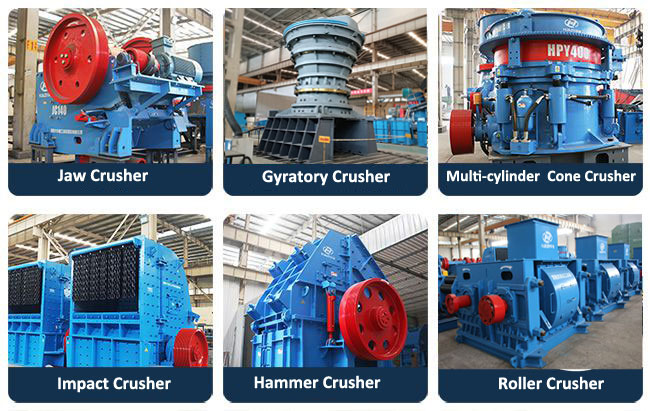Product Knowledge
Choosing the Optimal Crusher for Your Project
author:dahua2 time:2024-10-16
A crusher, also known as a stone crusher, is a machine that uses mechanical action to break large rocks, ores, or other raw materials into gravel or rock powder.Crushers are widely used in ore crushing, aggregate production, construction waste recycling, and natural stone processing.
Different crushers have various crushing methods, and different stages of crushing require different types of crushers.To ensure the smooth progress and achieve expected production efficiency and product quality, choosing the right crusher is crucial.
Here are key factors to help you make the best choice:
1. Material type
Hardness: Hard materials like granite and basalt are suitable for jaw crushers or gyratory crushers, while softer materials like limestone and coal can opt for impact crushers or hammer crushers.
Abrasiveness: Materials with high abrasiveness like iron ore require crushers with good wear resistance, such as cone crushers.
Moisture content: For materials with high moisture content, choose equipment with strong adaptability to moisture, like roller crushers and hammer crushers.
2. Application sites
Fixed crushers are not suitable for projects requiring frequent site changes but are ideal for mines and large construction projects due to their sturdy structure, high processing capacity, and low maintenance costs.
Mobile crushers and portable crushers are ideal for projects requiring site flexibility, such as construction waste processing, road construction, and small-scale mining. They are easy to install, highly mobile, and versatile, enabling quick deployment.
3. Desired output size
Coarse crushing: Use jaw crushers, gyratory crushers and hammer crushers in primary crushing to break large materials into medium sizes.
Medium crushing: Employ cone crushers or impact crushers in secondary crushing to further reduce material into smaller particles.
Fine crushing: Utilize sand making machines, roll crushers, fine crushers or compound crushers in tertiary crushing to produce fine sand or powder.
4. Capacity requirements
Determine the hourly capacity needed. Choose gyratory or cone crushers for large-scale production lines, and jaw or impact crushers for medium to small-scale operations.
5. Investment and operating costs
• Initial investment: Gyratory and cone crushers have higher initial costs but lower long-term operating costs. Jaw crushers and impact crushers are more cost-effective initially.
• operating costs: Gyratory crushers and cone crushers offer good wear resistance, while jaw plates in jaw crushers and hammers in impact crushers are susceptible to wear and are considered consumable parts.
There is a wide variety of crushers, each with unique advantages and applications in different crushing stages—whether primary, secondary, or tertiary crushing, Huazn Machinery provides suitable equipment to ensure the smooth progress of your project.
Previous Article:No Information
Next Article: What is silica sand used for?


.jpg)





